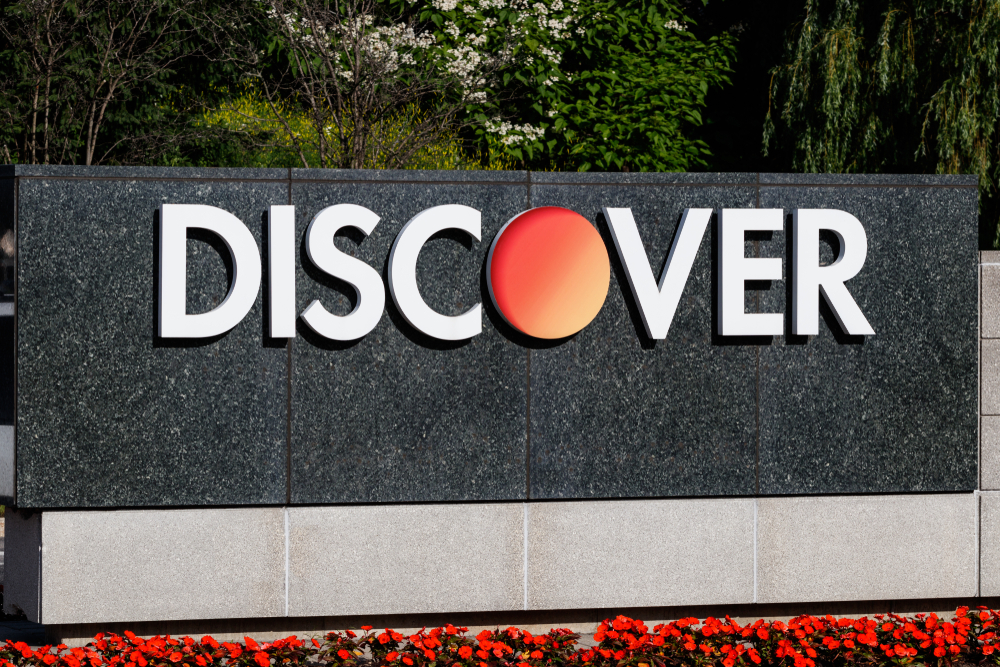Discover Financial Services agreed to pay up to $1.225 billion to settle claims that it misclassified consumer credit cards as commercial accounts, which led merchants to pay inflated interchange fees. This credit card misclassification issue allegedly affected businesses nationwide for years and sparked what is now one of the largest interchange fee lawsuits in U.S. history.
The issue allegedly began in 2007, when Discover started coding some consumer credit card transactions as commercial cards. This classification placed these transactions in a higher fee category, reportedly increasing costs for merchants and payment processors. As a result, businesses may have overpaid millions in fees between January 1, 2007, and December 31, 2023.
The settlement, entered into on July 1, 2025, is now awaiting court approval. In a regulatory filing, Discover stated that all payments will come from its $1.2 billion reserve. The company created the reserve fund in 2023 and expanded it in 2025.
Although Discover denies wrongdoing, it chose to settle the case to resolve years of litigation and regulatory scrutiny. The Discover payment processing lawsuit underscores the lasting financial impact of systemic errors in the card industry.
Legal Background and Court Approval
The $1.225 billion Discover Merchant Card Fee Settlement received preliminary approval on July 30, 2025, in the U.S. District Court for the Northern District of Illinois (Case No. 1:23-CV-4676 and related cases). The Discover interchange settlement ensures that at least $540 million will be distributed directly to class members.
The remaining funds will cover legal fees, administrative costs, and proportional adjustments based on the number of approved claims.
Who Can Join the Settlement?
The settlement class includes:
- End merchants who accepted Discover credit cards from 2007 to 2023
- Merchant acquirers that processed Discover transactions during that time
- Payment intermediaries that handled Discover card payments through platforms such as PayPal, Stripe, Square, or Shopify
Any business that accepted or processed Discover payments during the qualifying period may be eligible to receive compensation through the Discover merchant settlement.
How Much Money Can Merchants Receive?
According to the settlement terms, Discover will pay $1.225 billion into the fund, with at least $540 million allocated directly to class members. Every qualified claimant will receive a minimum payment of $10. Businesses that processed larger volumes of Discover transactions could receive higher amounts based on their total interchange overcharges.
Eligible class members can receive payments as part of the Discover class action payout, which compensates merchants, acquirers, and intermediaries affected by the misclassification.
Corporate and Regulatory Fallout
The alleged misclassification problem created serious consequences for Discover and its leadership team.
In July 2023, then-CEO Roger Hochschild admitted that the issue revealed weaknesses in Discover’s risk management and corporate oversight. He resigned shortly afterward. The Securities and Exchange Commission (SEC) began investigating, and federal regulators opened their own enforcement actions.
During early 2025, Discover added $799 million to the $375 million it had already reserved, bringing the total to about $1.2 billion. Interim CEO Michael Shepherd said the move would help “advance the resolution of these issues.”
The FDIC and the Federal Reserve also took coordinated action against Discover. The FDIC required Discover Bank in Greenwood, Delaware, to return $1.225 billion in restitution to affected merchants and imposed a $150 million penalty. At the same time, the Federal Reserve Board issued a $100 million fine and directed the company to improve its internal governance and compliance systems.
Regulators concluded that Discover’s misclassification practices caused merchants to overpay more than $1 billion in fees between 2007 and 2023. Discover warned investors that it could face further losses, additional shareholder lawsuits, and new penalties from regulators.

Capital One Merger and Compliance Issues
In February 2025, Capital One announced a $35.3 billion all-stock acquisition of Discover Financial Services. Capital One CEO Richard Fairbank said the company expected “a significant effort” to address Discover’s compliance and risk-management problems.
The merger would create the largest credit card issuer in the United States. The deal still needs approval from the Federal Reserve and the Office of the Comptroller of the Currency (OCC). A public hearing will take place on July 19, 2025, and both agencies will accept public comments through July 24.
Why Interchange Fees Matter
Every card transaction includes an interchange fee, which merchants pay to the card network. When a network assigns the wrong card type, these fees can increase dramatically.
For small and mid-sized businesses, even a small percentage difference can cost thousands of dollars each year. Attorneys involved in the case said the lawsuit exposes “a hidden cost that quietly drained merchants for nearly two decades.”
This interchange fee lawsuit also highlights the need for transparency across all major payment networks.
Key Settlement Deadlines
To receive compensation, participants must meet these key deadlines:
- March 25, 2026: Last day to opt out of or object to the settlement.
- May 18, 2026: Deadline to submit a completed claim form and any supporting information.
- May 20, 2026: Court date for final approval of the settlement.
Claim forms will be made available in early 2026. Eligible businesses will also receive notices by email or mail with detailed instructions on how to submit their claims.
How To File a Claim
Filing a claim is straightforward. Most applicants only need to provide basic business information, including:
- Legal business name and any DBA
- Taxpayer ID (SSN, EIN, or ITIN)
- Contact email and phone number
- Confirmation that your business accepted or processed Discover credit cards between 2007 and 2023
If you received a mailed or emailed notice with a Claimant ID and PIN, follow the instructions provided in that notice to complete your claim.
If you did not receive a notice, you can still file by verifying your business information during the claims process.
You can choose to receive payment by paper check or ACH deposit to a U.S. bank account. You can also update your payment information later through your claimant portal.
Is Proof Required?
Most claimants do not need to upload records at the time of filing. However, the Settlement Administrator may later request a W-9 or other documentation to verify eligibility. Keeping your business records handy can make the process smoother if follow-up is required.
What Happens Next?
After the May 2026 claim deadline, administrators will review submissions and calculate each claimant’s payment based on verified transaction data. Once the court grants final approval and any appeals conclude, payments will begin.
Why This Case Matters
The Discover settlement 2026 represents a major step toward accountability in the credit card and payment-processing industry. The case exposed long-standing issues in how networks classify and manage transactions, as well as the financial impact those errors have on merchants nationwide.
This Discover payment processing lawsuit is also expected to influence how major card networks manage compliance, prevent future credit card misclassification, and protect merchants from excessive fees.
The Bottom Line
If your business accepted Discover cards between 2007 and 2023, you may be eligible for compensation through the $1.225 billion Discover settlement 2026. Submitting a valid claim form is the only way to receive payment.
Check your eligibility and learn how to file by visiting OnlyClassActions.com. Make sure you file your claim before the May 18, 2026 deadline to ensure you receive your share of the Discover merchant settlement.
Frequently Asked Questions (FAQ)
You qualify if you accepted or processed Discover credit card transactions from January 1, 2007, to December 31, 2023, including through PayPal, Stripe, Square, or Shopify.
Each eligible claimant will receive at least $10, and businesses that processed higher volumes of Discover payments may receive larger amounts.
Usually not. Most claimants only need to provide accurate business details. Some may later be asked to submit a W-9 or other verification documents.
This case is in the settlement phase. Final approval is scheduled for May 20, 2026. Discover denies wrongdoing but agreed to resolve the claims.
Payments should begin after the court grants final approval and all claims and appeals are processed.



Add Comment